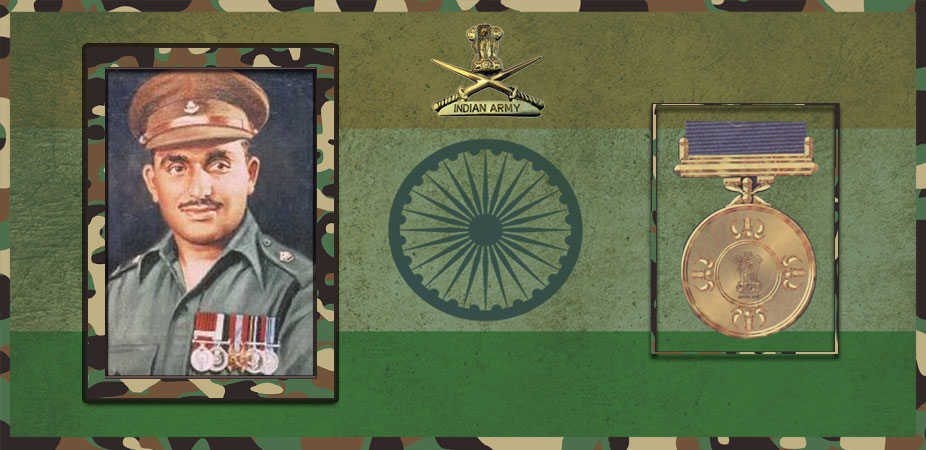Let's salute to our Indian Army together, We are proud to be Indian.
Let's salute to our Indian Army together, We are proud to be Indian.

Major Somnath Sharma, PVC (31 January 1923 – 3 November 1947), an Indian Army officer, was the first recipient of the Param Vir Chakra (PVC), India’s highest military decoration.
In 1942, Sharma was commissioned into the 8th Battalion, 19th Hyderabad Regiment. He served in Burma during the Arakan Campaign of World War II, for which he was mentioned in despatches. He later fought in the Indo-Pakistani War of 1947. Sharma was killed on 3 November 1947 while evicting Pakistani infiltrators from Srinagar Airport, and was posthumously awarded the Param Vir Chakra for his actions prior to his death.
Sharma was born on 31 January 1923 at Dadh, Kangra, then in the Punjab Province of British India, the present day state of Himachal Pradesh. His father, Amar Nath Sharma, was a military officer. Several of his siblings served in the military.
Sharma completed his schooling at Sherwood College, Nainital, before enrolling at the Prince of Wales Royal Military College in Dehradun. He later studied at the Royal Military College, Sandhurst During his childhood, Somnath was influenced by the teachings of Krishna and Arjuna in the Bhagavad Gita., taught to him by his grandfather.
On 22 February 1942, upon his graduation from the Royal Military College, Sharma was commissioned into the 8th Battalion, 19th Hyderabad Regiment, of the British Indian Army (later to become the Indian Army’s 4th Battalion, Kumaon Regiment). During World War II, he saw action against the Japanese in Burma during the Arakan Campaign. At that time he served under the command of Colonel K. S. Thimmayya, who would later rise to the rank of general and become Chief of the Army Staff from 1957 to 1961. Sharma was mentioned in despatches for his actions during the fighting of the Arakan Campaign.
Throughout his military career, Sharma was greatly influenced by his uncle Captain K. D. Vasudeva’s gallantry in action. Vasudeva also served with the 8th Battalion, participating in the Malayan Campaign during which he died aiding hundreds of soldiers under his command to survive from the Japanese offensive.